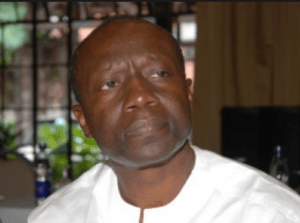Ghana starts implementation stage of beneficial ownership regime

The government has commenced the processes on Ghana’s Beneficial Ownership Disclosure (BOD) from being a legislation to the implementation stage to meet the 2020 deadline.
A beneficial ownership register seeks to make public, the name of a person or group of persons who directly or indirectly ultimately own or control a corporate entity.
Mr Ken Ofori-Atta, the Ministry for Finance, speaking at a stakeholder workshop on supporting the Registrar-General’s Department to develop an implementation framework for BOD register in Ghana, said the country has made significant strides towards enhancing transparency in the extractive sector.
The workshop organised by Ministry of Finance in collaboration with the Ghana Extractive Industry Transparency Initiative (GHEITI) Secretariat and the Registrar-General’s Department seeks to identify what the key implementation issues will entail, based on a framework with clear timelines and support the Registrar General’s Department (RGD) to develop the regulations for the Companies Amendment Act to facilitate the creation of a Beneficial Ownership register.
It is also to assist the RGD to explore ways to seek financial support for BO Implementation.
The Beneficial ownership is a term used in international commercial legislation referred to anyone, who enjoys the benefits of ownership of a security or property, and yet does not nominally own the asset itself.
He said through the Extractive Industry Transparency Initiative, a lot of progress has been made in the areas of policy changes and institutional reforms, which resulted in Ghana being awarded in EITI Chair’s award in Luma, Peru.
He also said though some level of progress has been made in the country as compared to other countries, it seems that the process was moving in a slow manner than expected and there was the need for all to put their shoulders to the wheel to quicken the implementation process.
He said the workshop should be used to interrogate the practical implementation issues that the country may face by implementing a beneficial ownership register, the advantages and disadvantages of various aspects of such a register, resources required and the security issues that may need to be assessed.
“We need to start building a clear understanding of the technical and legal infrastructure that would be required to put in place an effective and efficient register,” he added.
He said it was essential that such a register was compatible with the global data set on beneficial ownership, because “we know that such corporate structures are not in Ghana only but they will feed into corporate structures overseas and it is essential that these speaks to each other to ensure that anyone seeking to trace the flow of illicit funds is able to assess the global footprint.”
Mr Ofori-Atta said there was a lot more work to be done in order to ensure that the model developed for Ghana’s beneficial ownership regime meets the objectives that have been identified and take account of concerns raised by stakeholders.
He said government was committed in moving forward with the Implementation phase of the BOD process and was also committed to transparency and accountability both within government and the private sector.
Mrs Jemima M. Oware, the Acting Registrar-General, Registrar-General Department, said the department has developed an electronic data based, which could be expanded to include the BOD.
She said there was the need to put structures together to educate the public, especially the business owners on the new regime.
She, therefore, called for training of staff in new areas to boost their capacity in the implementation stage of the BOD.
Dr. Steve Manteaw, the Co-Chair of the Ghana Extractive Industry Transparency Initiative, said for Ghana to derive the maximum benefit from the extractive industry, there was the need for beneficial ownership disclosure to be part of the sectors rules and regulates.
Source: GNA
